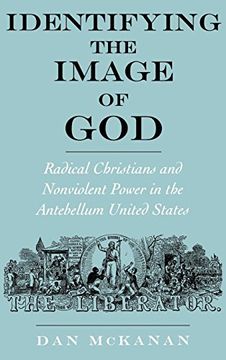Identifying the Image of God: Radical Christians and Nonviolent Power in the Antebellum United States (Religion in America) (en Inglés)
Reseña del libro "Identifying the Image of God: Radical Christians and Nonviolent Power in the Antebellum United States (Religion in America) (en Inglés)"
Between 1820 and 1860, American social reformers pioneered a sentimental "politics of identification" that invited people of all backgrounds to identify with the victims of war, slavery, and addiction. By portraying Native Americans, slaves, and "drunkards" as both physically vulnerable and socially related, these activists helped their neighbours see them as fully and equally human. Sentimental writers, like Lydia Maria Child, T. S. Arthur, Frederick Douglass, and Harriet Beecher Stowe, proposed that the image of God was visible in the victims of violence. In Identifying the Image of God, Dan McKanan traces the theme of identification through the literature of social reform, focusing on sentimental novels, temperance tales, and fugitive slave narratives. All of these genres, he suggests, were rooted in a liberal Christian theology that rejected traditional notions of original sin and claimed, instead, that all people possess a divine image with the power to transform the world. Sentimental literature drew on the liberal idealism of the Declaration of Independence, yet many reformers took shared American values to countercultural extremes. Indeed, radical Christian liberals like William Lloyd Garrison believed that sentimental identification could be the basis for a society free from all violence and coercion. Throughout, McKanan integrates the perspectives of theology, history, and literary studies to provide a fuller picture of antebellum social reform. In an era when sentimentality is synonymous with saccharine excess and liberalism with government bureaucracy, he defends both traditions. Though he recognizes the liabilities and limitations of sentimental liberalism, he insists that contemporary activists have much to learn from the abolitionists, nonresistants, and temperance reformers of the antebellum period. Their example invites all of us to identify with the marginalized of our society, and to use nonviolent affection to build a new society.

